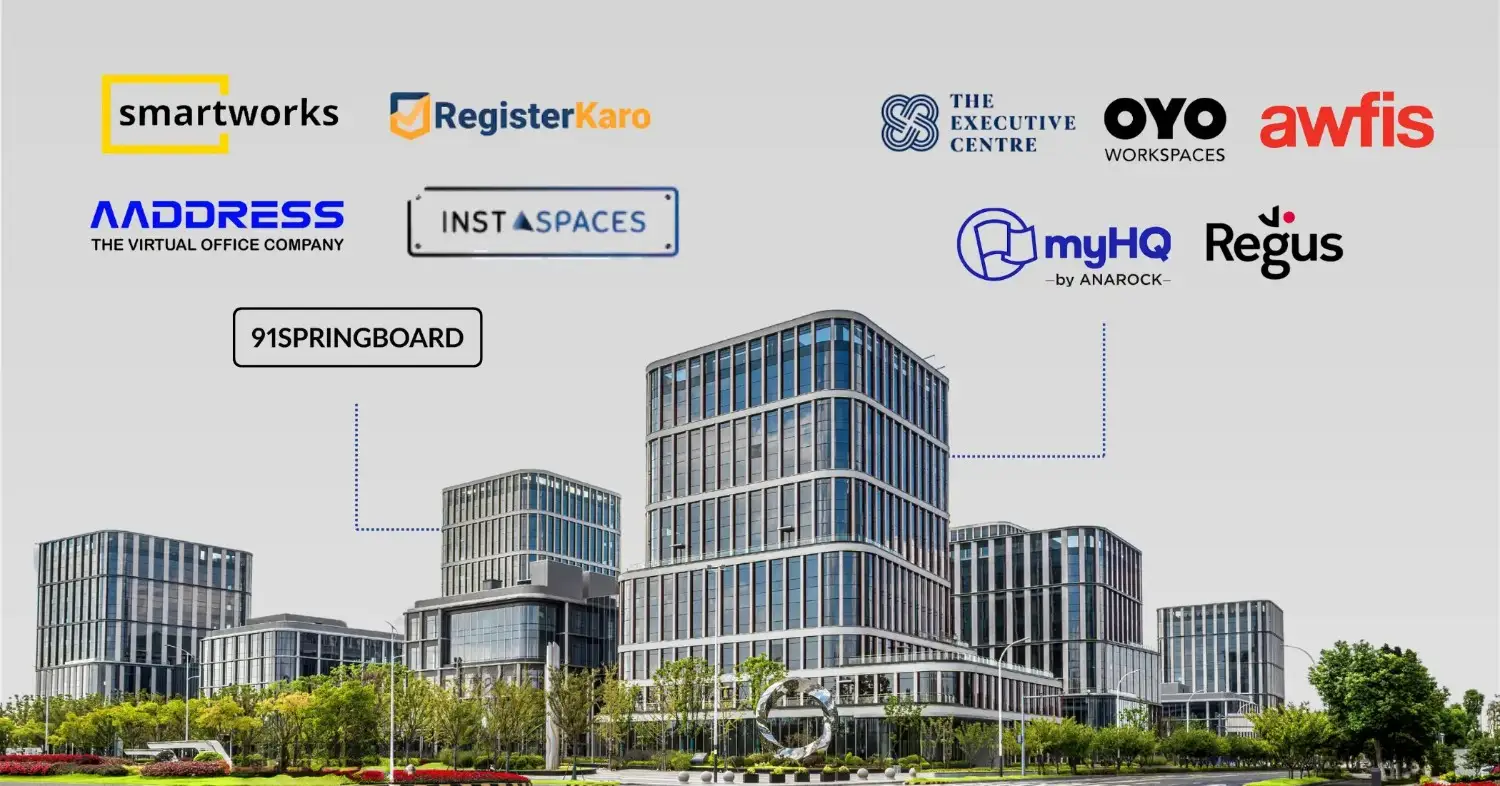A virtual office space gives companies a professional address without renting or owning physical space. It includes services like mail handling, call forwarding, access to meeting rooms, and compliance-ready documentation.
This model helps businesses cut costs, work flexibly, and maintain a credible presence. Startups, freelancers, and expanding firms gain the benefits of a real office address while avoiding heavy rent and infrastructure expenses.
In Haryana, this approach is growing fast as businesses adopt digital-first solutions and cost-efficient practices. These factors explain why virtual offices are becoming a preferred choice in the state:
- The Haryana government delivers 545+ services from 44 departments through the SARAL portal, making compliance and applications faster and more transparent. For Haryana-based incorporations, the Registrar of Companies (ROC), Delhi & Haryana, is the authority. This system supports businesses that use virtual offices for GST and ROC documentation.
- Over 22,287 employees in 92 departments and 22 districts now use the eOffice system, with more than 4 lakh eFiles and 17 lakh transactions processed digitally. With Haryana going digital, virtual offices fit right in—they save costs, simplify compliance, and give flexibility.
- The state has also digitized property and land record systems. Web-HALRIS, a cloud-based platform, integrates property registration, e-stamping, and land record management. These reforms reduce paperwork and promote digital compliance, making virtual offices even more relevant for modern businesses in Haryana.
How a Virtual Office Works for Business in Haryana?
A virtual office helps businesses cut costs while staying compliant. It builds credibility, improves communication, and removes the need for expensive rentals. Here’s how virtual office services in Haryana work:
- Provides a prime business address for GST registration, ROC filings, and client trust.
- Manages mail and courier services, scans documents, and forwards them promptly.
- Offers reception support to answer calls and handle client queries in your company’s name.
- Gives access to meeting rooms or coworking desks only when needed, keeping expenses low.
Note: GST officers may conduct inspections. Only registered virtual offices with valid documents like NOC, rent agreement, and utility bills are accepted.
Virtual Office vs. Traditional Office: Which is Better in Haryana?
Haryana is rapidly growing as a hub for startups, SMEs, exporters, and freelancers, especially in cities like Gurugram, Faridabad, and Panchkula. The type of office you choose directly impacts your costs, flexibility, and credibility.
Here’s how virtual and traditional offices compare in Haryana:
| Factor | Virtual Office | Traditional Office |
| Cost | Low monthly plans; pay only for needed services | High rent in prime locations |
| Location/ Address | Prime business addresses in Gurgaon, Faridabad, and Hisar | Requires leasing full office space in commercial hubs |
| Flexibility | Work from anywhere, use meeting rooms when needed | Fixed location, limited flexibility |
| Compliance Support | Provides GST-ready documents, NOC, rent agreement, and mail handling | You handle GST, ROC filings, and mail yourself |
| Professional Image | Gives a credible business presence without a full-time office | A full office gives a tangible presence, but costly |
| Scalability | Easy to scale up or down as the business grows | Expanding requires renegotiating the lease or moving |
| Setup Time | Immediate setup, usually within 24–48 hours | Takes weeks to find, lease, and furnish an office |
| Operational Overheads | Minimal, only pay for services used | High utility bills, maintenance, and staffing costs |
| Ideal For | Startups, freelancers, e-commerce, and home-based businesses | Established companies needing full infrastructure |
Note: Virtual offices are legally valid for GST and ROC registration if they provide the required compliance documents. Always ensure your provider is authorised and GST-accepted.











